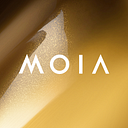MOIA Hackathon 2020 — our learnings & insights
Participating in a hackathon this year wasn’t like any other. In 2019, we gathered for a town hall meeting on site, pitched our ideas and formed small groups. We then spread out in a co-working place in a fun little corner of Sternschanze and started to hack. We met later for lunch together, and had some celebratory drinks in the evening.
Now, enter 2020.
Happy remote hacking!
In the beginning of November, the Hackathon was announced during our Company Breakfast (a monthly all-hands, usually with breakfast together, but now remotely, of course) and we were asked to pitch our ideas within the next two weeks via a shared wiki.
The Project pitches: MOIA Karaoke
One of the ideas was to have a karaoke party inside the MOIA.
“Do you like Karaoke but are afraid to sing in front of large crowds? Let’s provide a more private space for this, like in Asia with smaller Karaoke boxes. The lyrics will be displayed on the In-Vehicle-Screen and the vehicle speakers should be sufficient for the instrumental music.”
Required skills:
- Vehicle hardware interfaces (screen and infotainment system)
- UX (In-Vehicle-Screen and mobile app / mobile web page)
- Backend service (to queue songs)
- Mobile frontend app / web page
We then had another remote session where all the ideas were presented to explain them in more detail, allow for questions, and check if they sparked any interest from colleagues. Every idea had one “champion” who came up with the idea and would be responsible for its organisation (setting up a Slack channel, a Google Meet room, checking requirements, etc). The list of submitted ideas already sparked excitement for what was to happen during the two hackathon days. Here are some examples:
- A macOS dictionary as a glossary for MOIA-vocabulary
- Booking MOIA rides without installing the app (via iOS App Clips & Android Instant Apps)
- MOIA iOS Widget
- Share your MOIA ride with friends (live location)
- A MOIA mod for the game “Cities Skyline”
- Virtual MOIA stops in AR
- An in-vehicle quiz for entertainment during your MOIA ride
- Predictable in-app feedback using machine learning
- The above mentioned “caraoke”
One Monday in December it was finally time and all the fully-formed teams could start.
The “caraoke” group gathered for a quick brainstorming session on the requirements with the following results:
- Use the YouTube API to search for karaoke songs
- A mobile friendly web-app for customers to search for and queue songs
- A splash page for the in-vehicle-screen showing a QR code linking to the queueing interface
- A web page to play karaoke videos on the in-vehicle-screen once queued
- A backend service to accept song requests
- A small computer to host the server (decided on a Raspberry Pi 3)
- TypeScript, Next.js, Apollo Server and GraphQL Subscriptions as the tech stack.
How to advance your hackathon — Trophy system
To make the hackathon even more fun, there was a trophy system with achievements that could be unlocked by all teams. Here are some examples:
- Long Island Iced Tea
Each member of your Hackathon Team is from a different team - I am a Coder
Your project has a commit from someone who never commited to git before - L337 c0mm!73r
There is a commit at 13:37 CET - Driving home for christmas
Your design sneaks in some snowflakes
In the afternoon of Day 2 everyone met again on a video call and presented their results. The results were really good! It was truly inspiring to see the creativity flourish and how much great projects were created in such a short period of time even if most of us participated remotely this year.
Our main learning: our creative and smart colleagues can’t be stopped, not even by a pandemic!
